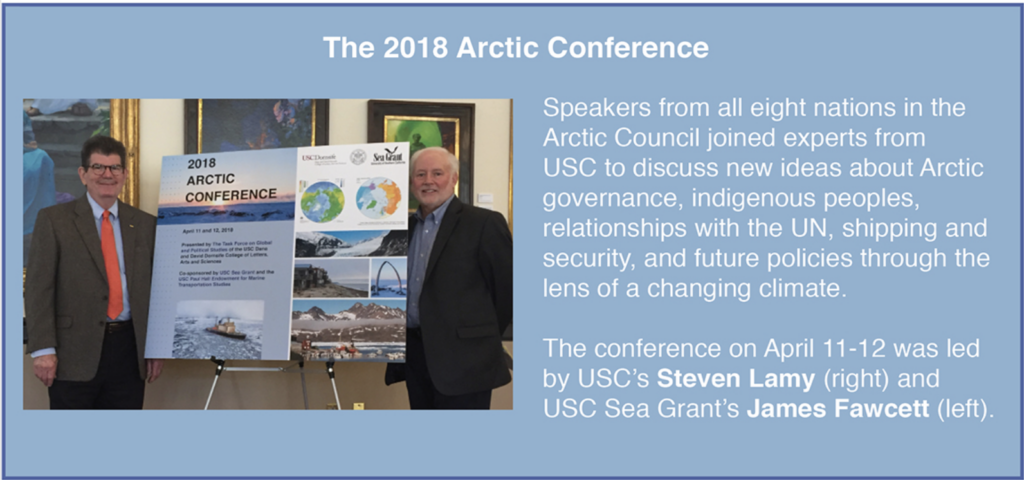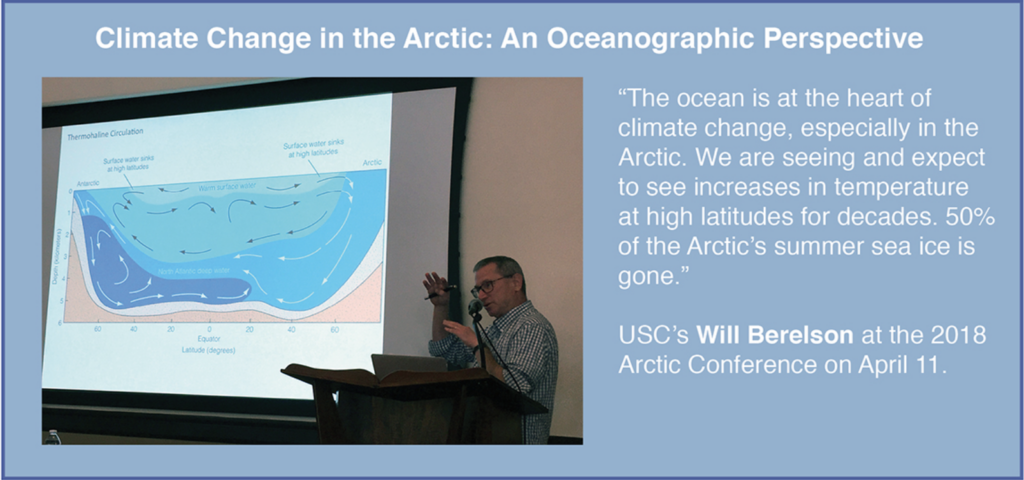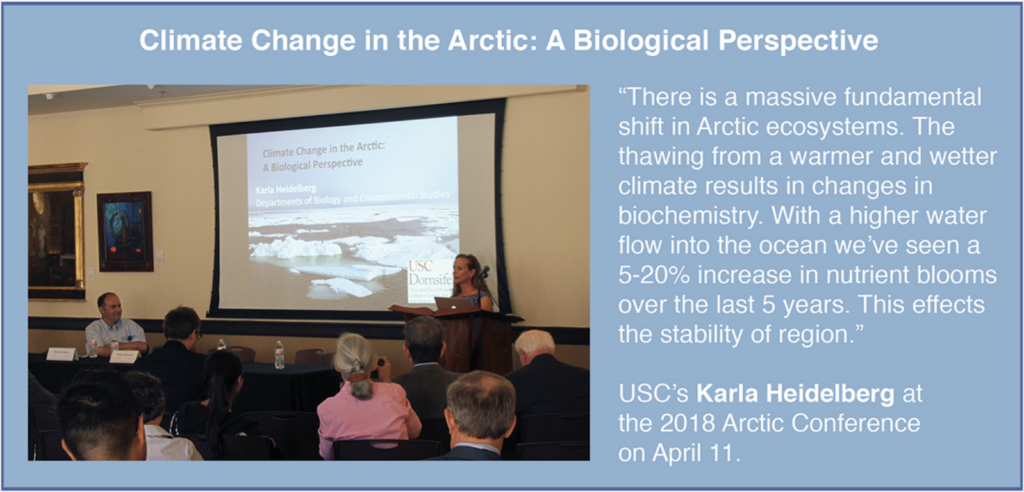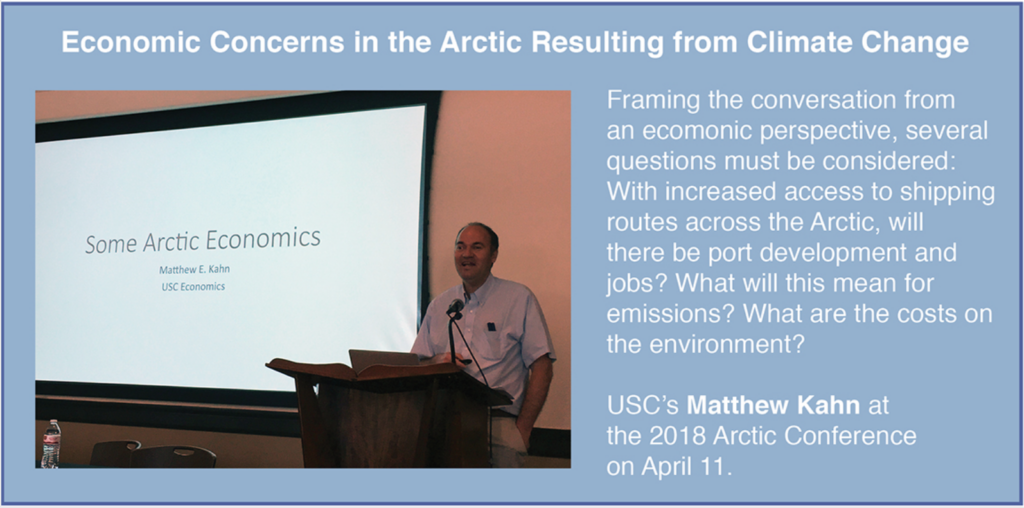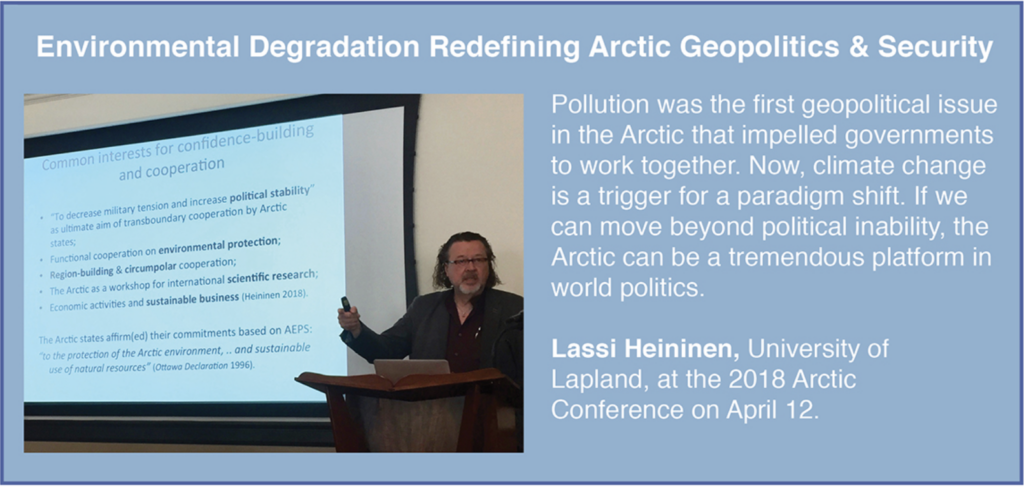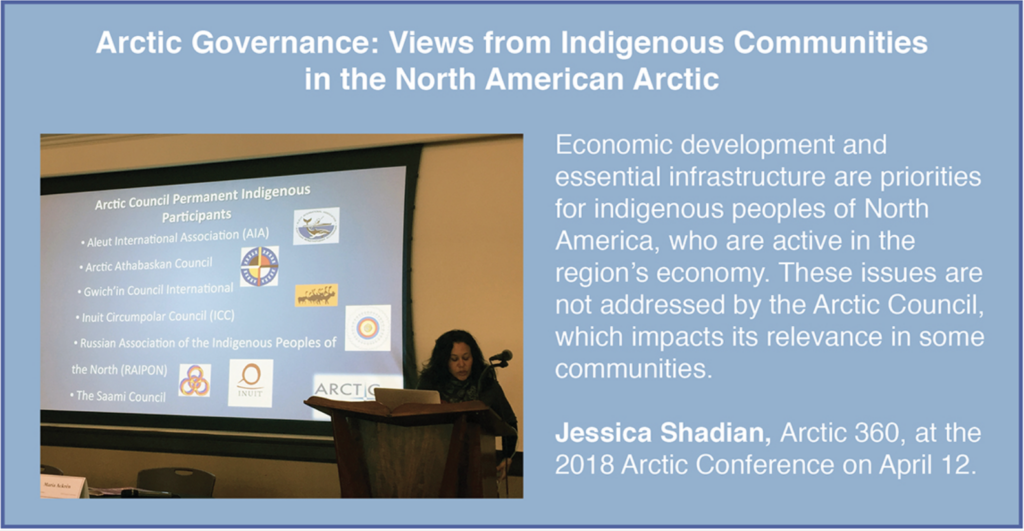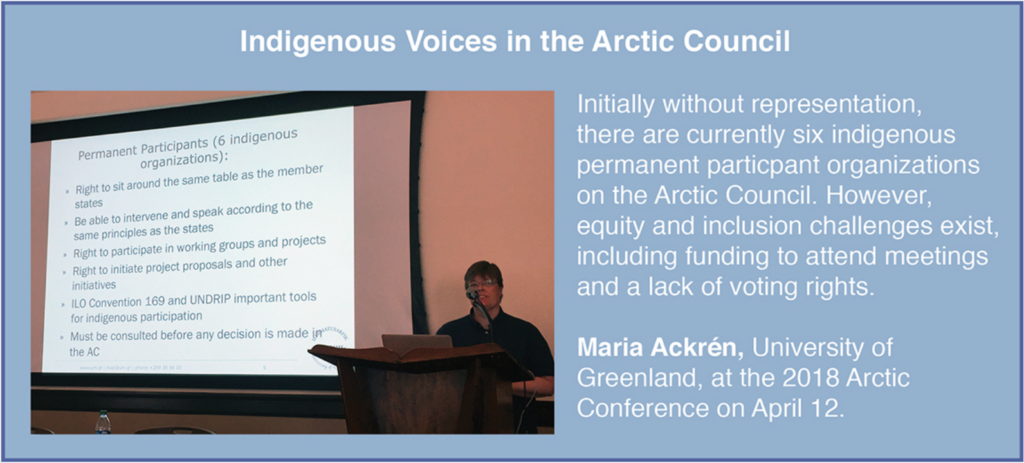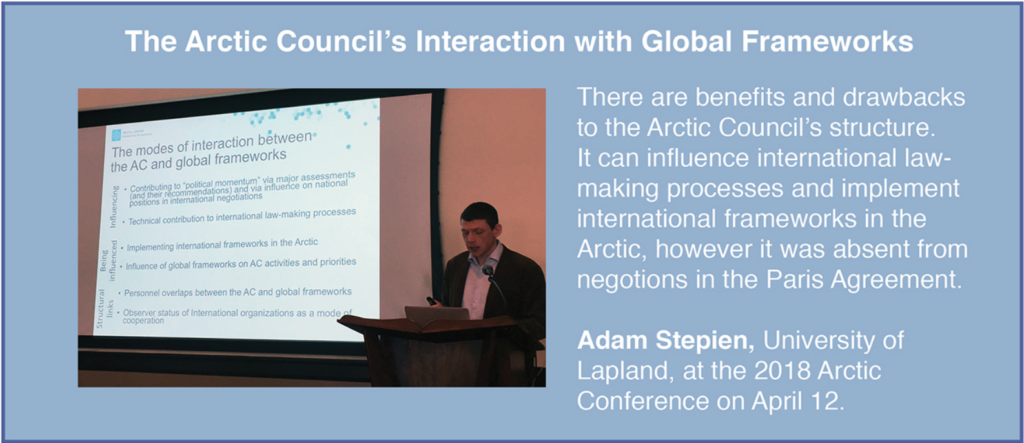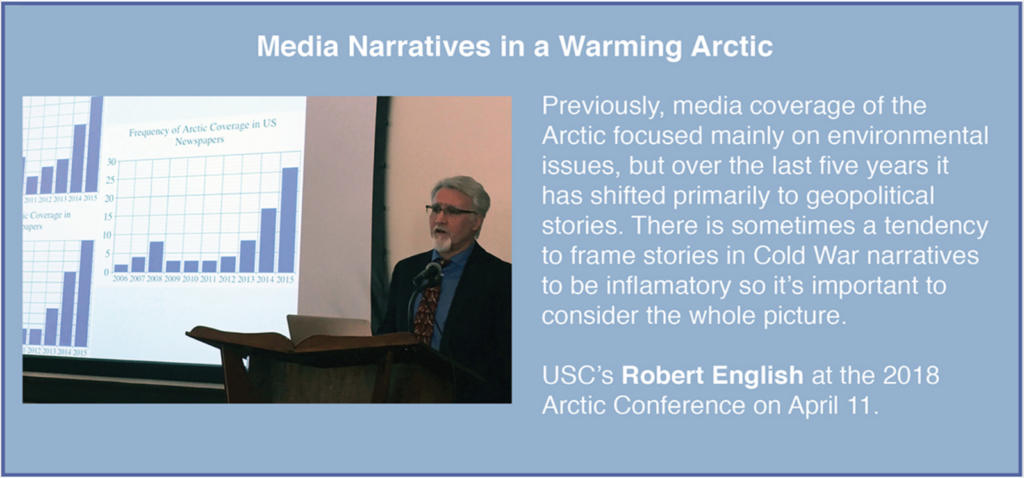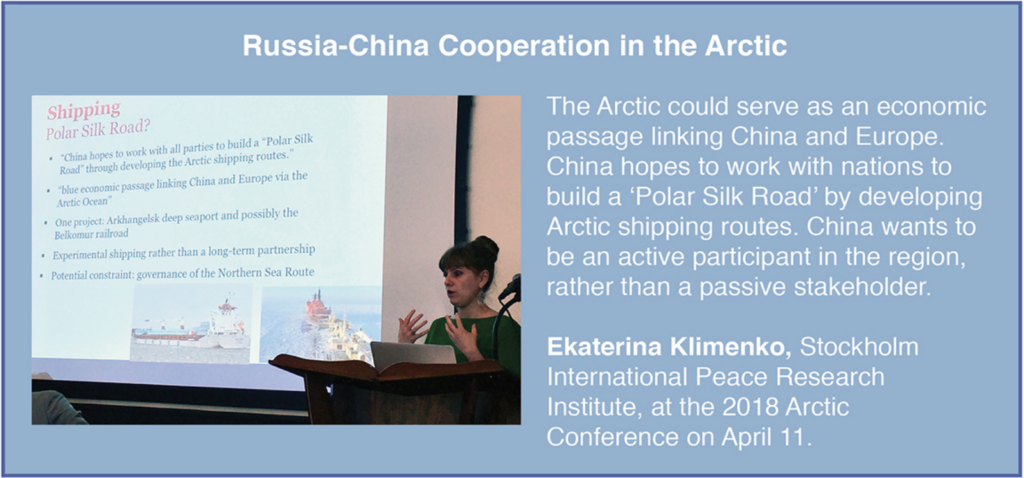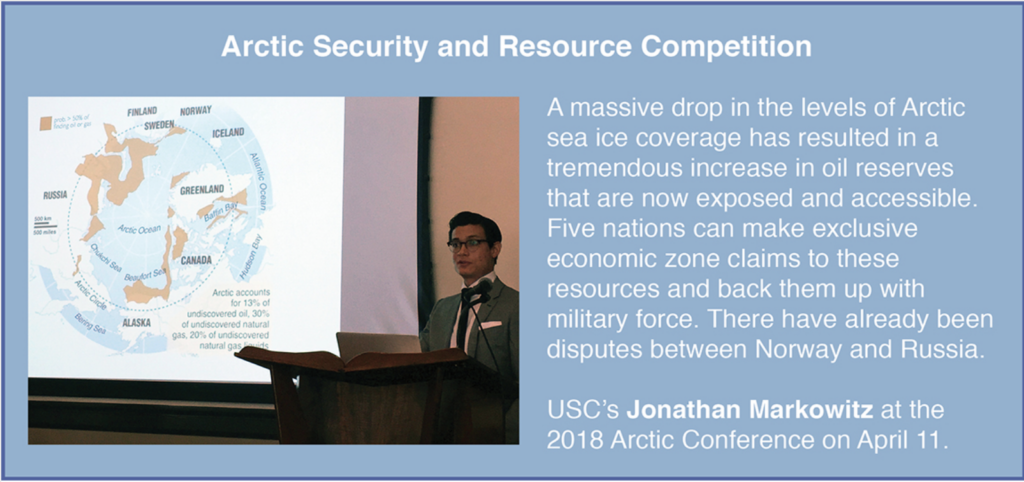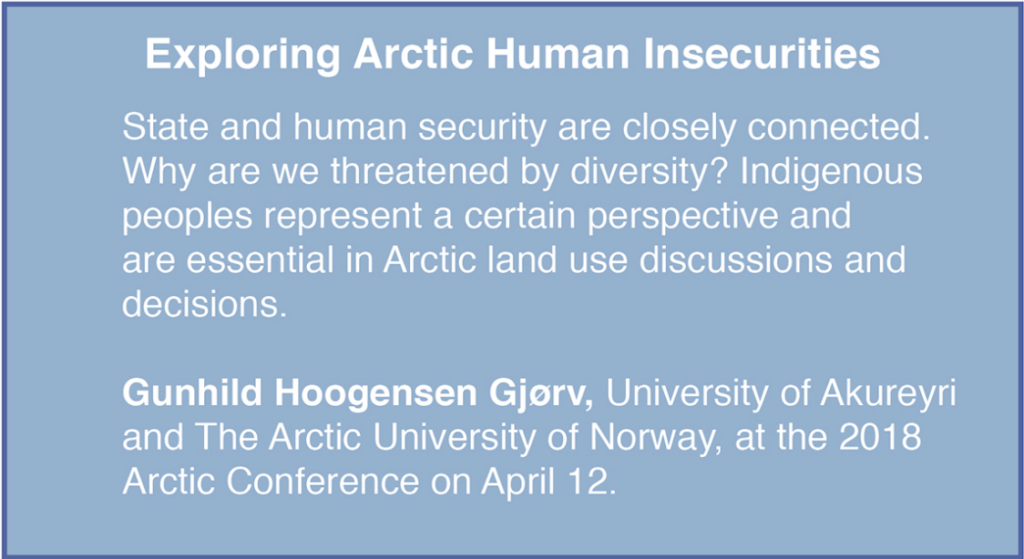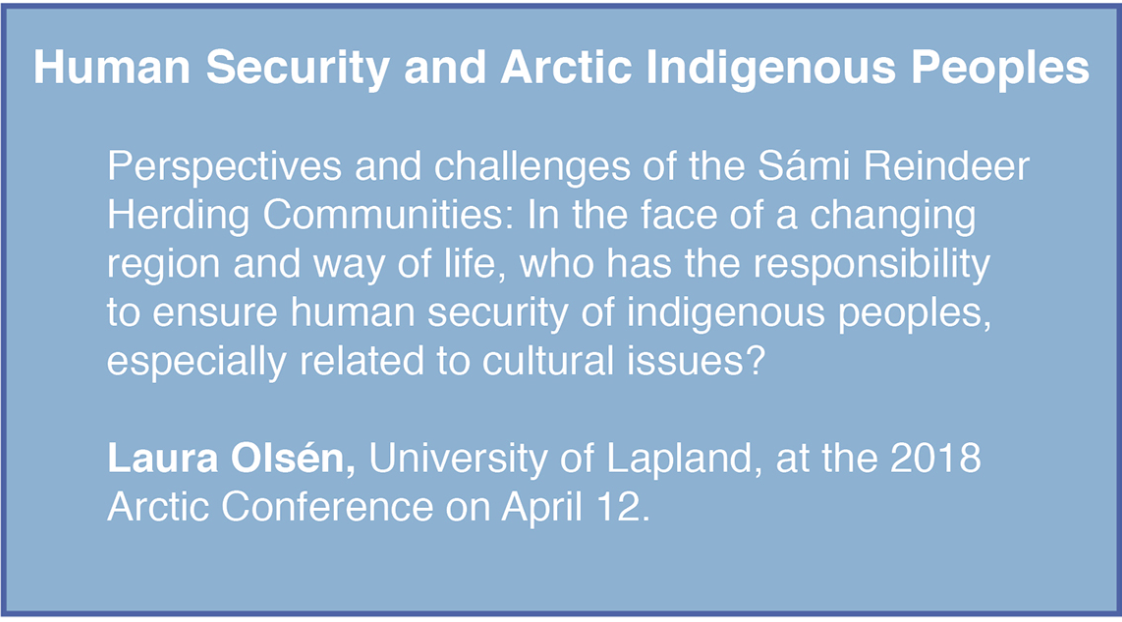Highlights from the 2018 Arctic Conference
USC Sea Grant and USC’s Global Policy Institute hosted the 2018 Arctic Conference April 11-12 at the Caruso Catholic Center in Los Angeles. The conference hosted 22 speakers and included experts from USC and representatives from all eight nations in the Arctic Council (U.S., Canada, Greenland (a semi-autonomous region of Denmark), Iceland, Denmark, Norway, Sweden, Finland and the Russian Federation). Discussions were filled with new ideas about major challenges in Arctic governance, security, marine shipping and transportation, environmental risks, indigenous communities, tourism, and future policies through the lens of a changing climate.
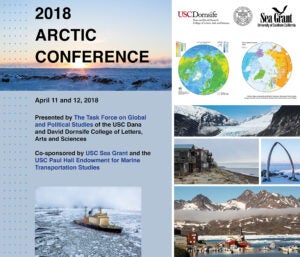 This was the first conference under USC’s Global Policy Institute and it was supported by the USC Paul Hall Endowment for Marine Transportation Studies. After more than a year of planning, the conference was a great success! One result of the meeting is a commitment from speakers to compile papers on the topics discussed into a book with editorship by James Fawcett (USC Sea Grant Director of Extension & Marine Transportation and Seaport Specialist) and Steven Lamy (Director of USC’s Global Policy Institute and professor of international relations).
This was the first conference under USC’s Global Policy Institute and it was supported by the USC Paul Hall Endowment for Marine Transportation Studies. After more than a year of planning, the conference was a great success! One result of the meeting is a commitment from speakers to compile papers on the topics discussed into a book with editorship by James Fawcett (USC Sea Grant Director of Extension & Marine Transportation and Seaport Specialist) and Steven Lamy (Director of USC’s Global Policy Institute and professor of international relations).
We’ve captured highlights from speakers in the images below and James Fawcett shares these additional key themes from the conference:
- Knowing our Arctic partners is important for the safety and coordination of shipping traffic in treacherous Arctic seas and Sea Grant is eager to remain a research partner in these relationships. With the change in Arctic sea ice coverage, additional Pacific shipping will seek passage to Europe through the Arctic, and most likely through Russian waters since that is the most efficient route to and from Europe. As the ports at Los Angeles and Long Beach are the busiest seaports in the U.S., we will likely see vessels transiting Arctic waters from our ports.
- The Arctic Council has now initiated a secretariat to represent indigenous peoples of the Arctic. The Inuit, Northern Athabaskan, Aleut, Gwich’in, RAIPON, and Saami are represented in the Arctic Council as permanent participants, but since they are not states their voices are often not as effective as those of nation states. The secretariat will help them effectively articulate their needs and concerns at the headquarters of the Arctic Council in Tromsø, Norway.
- With the busiest Arctic coastline, the Russian Federation has developed Siberian resources and infrastructure and uses the Arctic as a marine highway for exporting goods such as liquefied natural gas from their new facility at Yamal and nickel, platinum and palladium ore from the Norilsk-Talnakh mines near the Yenisei River. With a fleet of modern Arctic icebreakers, they are now able to move their own and non-Russian transshipped cargo through their Arctic coastline between Asia and Europe, achieving a goal of their 2014 Arctic Strategy.
- As our colleague from Finland, Professor Lassi Heininen, has reminded us, with a receding ice pack the Arctic will become ever more important to the world from both an economic and environmental perspective. Our challenge is to act now to protect Arctic resources, develop cooperative relationships among the eight Arctic nations, indigenous populations and other nations who use or will use Arctic waters. By acting now, we will have the best chance to protect and manage these resources for the future.
Conference Highlights
